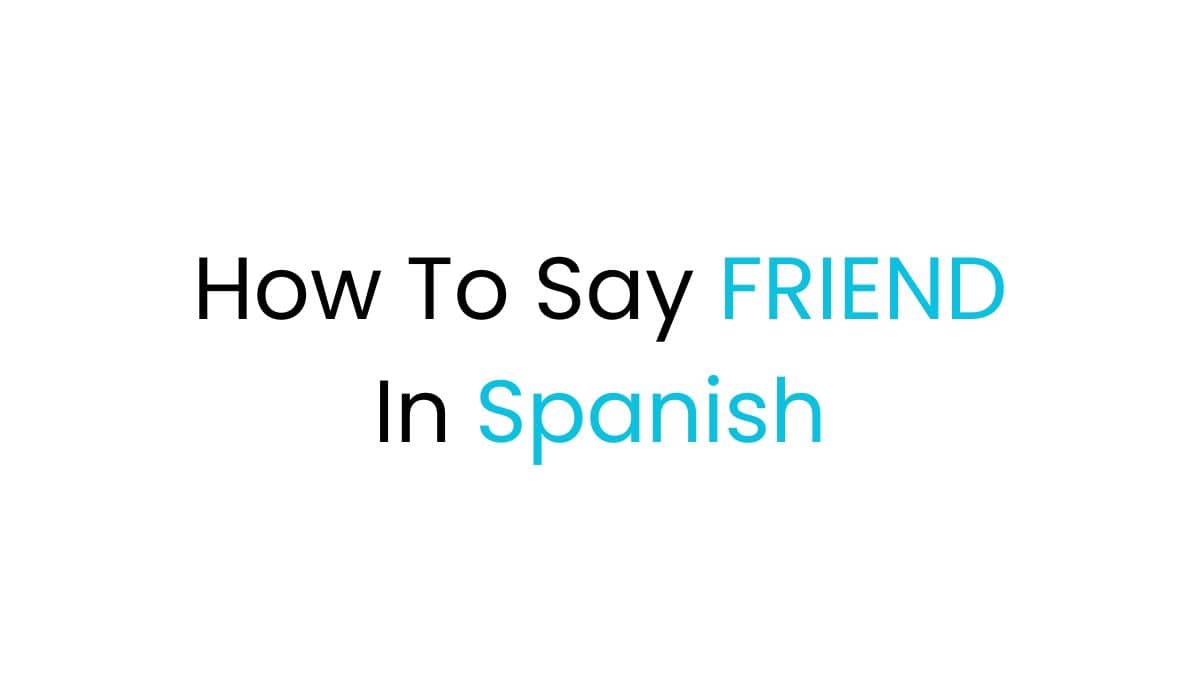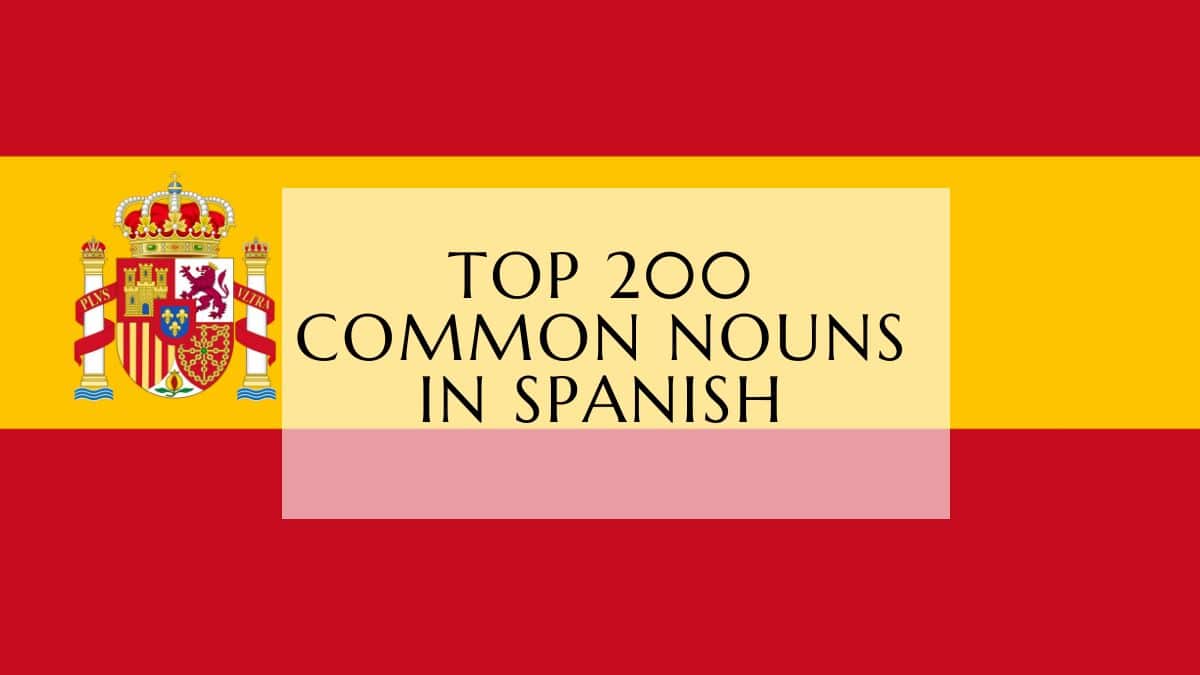Friendship adds fun, kindness, and love to life, making it better. Why not surprise your friends with different words for “friend” in Spanish? Spanish is spoken in over 20 countries, so it’s no wonder there’s a lot of slang.

This article will show you more than 20 ways to call your friends in Spanish. You’ll learn common words, regional terms, and Spanish slang. Knowing these can make talking with friends easier and grow your Spanish vocabulary if you live in a Spanish-speaking country.
Common Spanish Words for Friend
In Spanish, amigo and amiga are the top words for friends. Amigo is for men, and amiga is for women. For groups, use amigos for any mix, and amigas for just women.
Calling someone your mejor amigo or mejor amiga means they’re more than just a friend. It shows they’re your best friend. This means you share a deeper connection.
| Spanish Term | Meaning |
|---|---|
| Amigo | Friend (masculine) |
| Amiga | Friend (feminine) |
| Amigos | Friends (all-male or mixed group) |
| Amigas | Friends (female-only group) |
| Mejor amigo | Best friend (masculine) |
| Mejor amiga | Best friend (feminine) |
Regional Slang Terms for Friend
Spanish is spoken in over 20 countries, making its regional slang terms for “friend” incredibly diverse. From Mexico’s vibrant slang to Argentina, Peru, and Colombia’s unique expressions, the Spanish-speaking world is full of Spanish slang for close friends.
In Spain, popular spanish slang for friend includes tío/tía, tronco, chaval/chavala, íntimo, peña, and pive. Argentina and Uruguay have their own regional slang for friend in spanish, like Che, boludo/boluda, pibe/piba, viejo/vieja, gomía, and gurí/gurisa.
Colombian spanish slang for friend is lively, with terms like pana, llave, carnal, compa, amigazo/amigaza, chino/china, veci, and cucha/cucho. In Mexico, spanish slang for friend includes güey, chavo/chava, parcero/parcera, cuate, mano, chido/chida, and valedor.
Central American countries also have their own regional slang for friend in Spanish, like Mae, chero, cipote/cipota, broder, chavalo/chavala, bicho/bicha, and plebe. Words like chido in Mexico and pata in Andean regions show the influence of indigenous languages on Spanish slang.
The variety of Spanish slang for friend shows the language’s richness and cultural depth. Whether you’re in Spain, Mexico, Colombia, or Argentina, you’ll find a unique way to call your friends.
Mexican Slang for Friend
Spanish is spoken in over 20 countries, but Mexico has its own slang for friends. Knowing these expressions can make talking with locals easier and sound more natural.
Hermano / Hermana
In Mexico, hermano (brother) and hermana (sister) mean more than just family. They’re used to talk to close friends. This shows a deep connection and a sense of chosen family.
Pana, Panita
Pana or panita are also slang for “friend” in Mexico. They come from Venezuela and Ecuador but are now part of Mexican speech.
Socio / Socia
Socio (business partner) is also a slang for a close friend in Mexico. It’s often used for those who have been through a lot together. The feminine form, socia, is for a female friend.
Spanish Slang from Spain
Spanish slang in Spain is full of unique and colorful expressions. Two key terms for “friend” are tío and tía.
Tío and tía mean “uncle” and “aunt” in English. But in Spain, they’re used to talk to friends. You’ll often hear “¿Qué pasa, tío?” or “¿Cómo estás, tía?” as greetings. These terms show closeness and friendship.
Colega is another term for “friend” in Spain, often used for a work colleague. But it can also mean a close friend with similar interests. Colega is a simple way to call a Spanish slang for friend, especially in Spain.
| Spanish Slang Term | Meaning | Example Sentence |
|---|---|---|
| Tío / Tía | Informal way to address a friend | “¿Qué pasa, tío? ¿Vamos a tomar una cerveza?” |
| Colega | Friend, colleague | “Oye, colega, ¿te apetece ir al cine esta noche?” |
Using Spanish slang can help you connect with Spanish-speaking friends. It makes casual conversations in Spain easier. Knowing when and how to use these terms can make you sound more like a local.
Friend in Spanish Slang from Latin America
The Spanish language has many regional slang words, especially for friends. In Latin America, there are many fun and loving ways to call your friends. These terms show the rich culture and friendship in each country.
Argentina: Ché, Boludo, Pibe
In Argentina, ché is a common slang for a friend. Boludo and pibe are also used, but boludo can mean different things depending on how it’s used.
Peru: Pata, Causa, Yunta
Peruvian Spanish has its own slang for friends. Pata means “friend” or “buddy.” Causa and yunta are also used for close friends.
Colombia: Parcero, Parce, Cachaco
In Colombia, parcero or parce means close friend. Cachaco is a term used by coastal Colombians for people from inland areas. It can also be a friendly way to call someone.
| Country | Slang Terms for “Friend” |
|---|---|
| Argentina | ché, boludo, pibe |
| Peru | pata, causa, yunta |
| Colombia | parcero, parce, cachaco |
Caribbean Spanish Slang for friend
In the vibrant Spanish-speaking Caribbean, friendship is a big part of the culture. From Cuba’s sunny shores to Puerto Rico and the Dominican Republic’s lively streets, special slang terms have come up. These terms show how close friends are to each other.
Cuba: Asere and Cúmbila
In Cuba, “asere” is a way to call a friend. It means having a close bond and shared stories. “Cúmbila” is another term for a very close friend. It shows how important these relationships are to Cubans.
Puerto Rico: Pana and Panita
Puerto Ricans use “pana” and “panita” to call their best friends. These words come from “panaca,” meaning family. It shows how close and connected these friendships are.
Dominican Republic: Cachanchán
In the Dominican Republic, “cachanchán” means friend. It’s about being close and having a good time. It reflects the Dominican people’s friendly and welcoming nature.
These slang terms from the Caribbean highlight the language’s diversity. They also show the cultural values and connections in these communities.
Other Relationships in Spanish
In Spanish, there are special words for relationships that are not as close as friends. These words mean you know someone, but it’s not a deep friendship. Conocido / conocida and compañero / compañera are two examples.
Conocido / Conocida
Conocido (male) and conocida (female) mean you know someone, but it’s not a close bond. You might meet them at work, school, or social events. Your connection with them is casual and not very deep.
Compañero / Compañera
Compañero (male) and compañera (female) are for a coworker or classmate. They show a sense of teamwork and respect, but not a close friendship. These words are often used in work or school settings.
| Term | Meaning | Example |
|---|---|---|
| Conocido / Conocida | Acquaintance | Ella es una conocida mía del trabajo. |
| Compañero / Compañera | Coworker / Classmate | Mi compañero de clase me ayudó con el proyecto. |
These Spanish terms help us talk about relationships that are not just friends. They let us be clear about how well we know someone. This makes it easier to understand the level of connection between people.
Conclusion
The Spanish-speaking world is full of words and slang for friendship. These words show how much friends mean to people in these cultures. Words like amigo and mejor amigo show the many ways we make and keep close friends.
Learning about Spanish vocabulary and Spanish slang for friendship helps us understand the language better. It also shows us the lively social life in Spanish-speaking areas. Using these expressions can make our friendships stronger and our relationships more real.
As we end this look into Spanish vocabulary for friendship, we see something important. The words we use to talk about our friends reflect our culture and community. By using this diversity, we can build deeper connections. And we can see the true value of friendship everywhere.
Oualid Cheddadi is the founder of Lingualid, a platform that inspires independent language learners worldwide, regardless of the language they are learning. The name “Lingualid” is derived from the Portuguese word for “language,” “língua,” and the last three letters of Oualid’s name, “Lid.”



